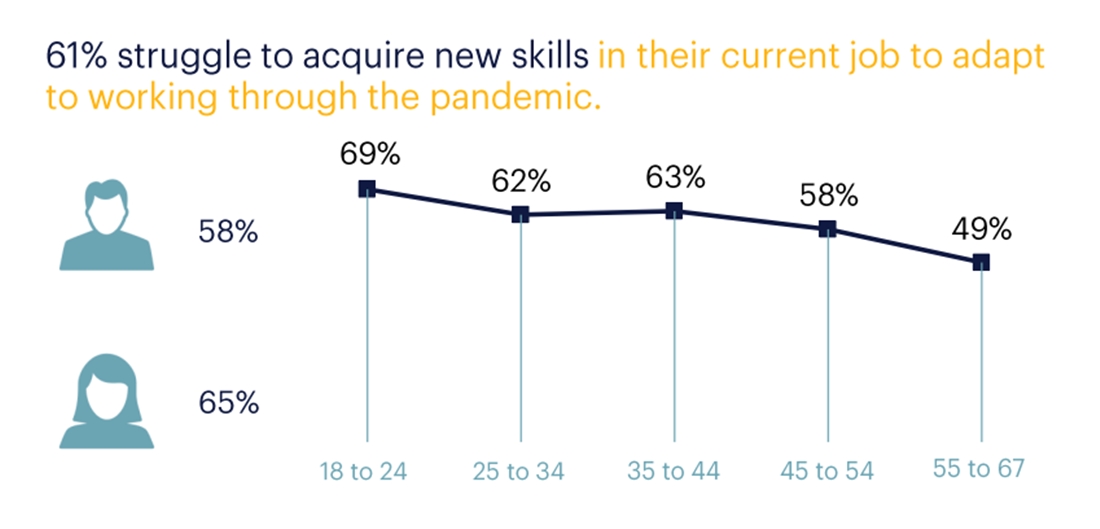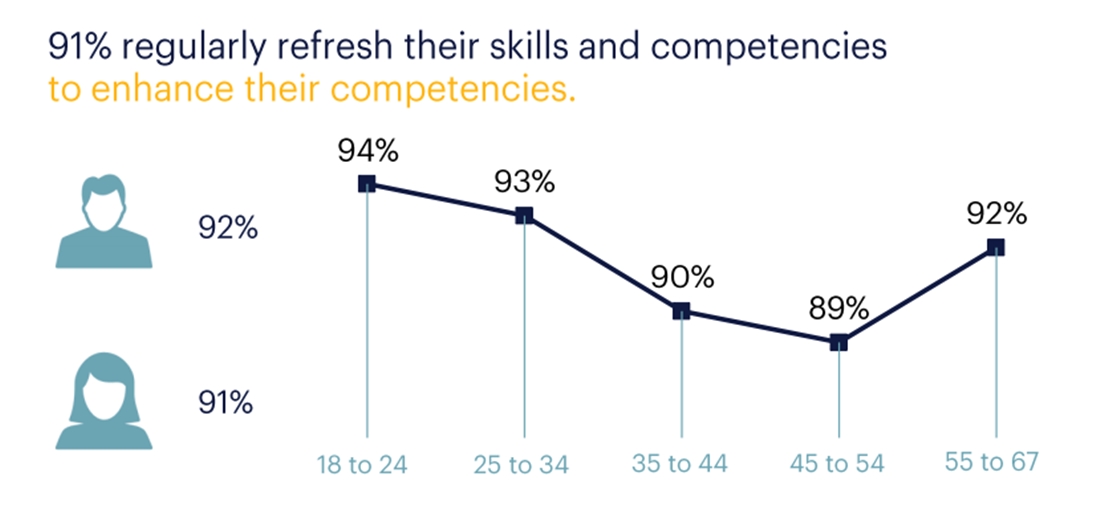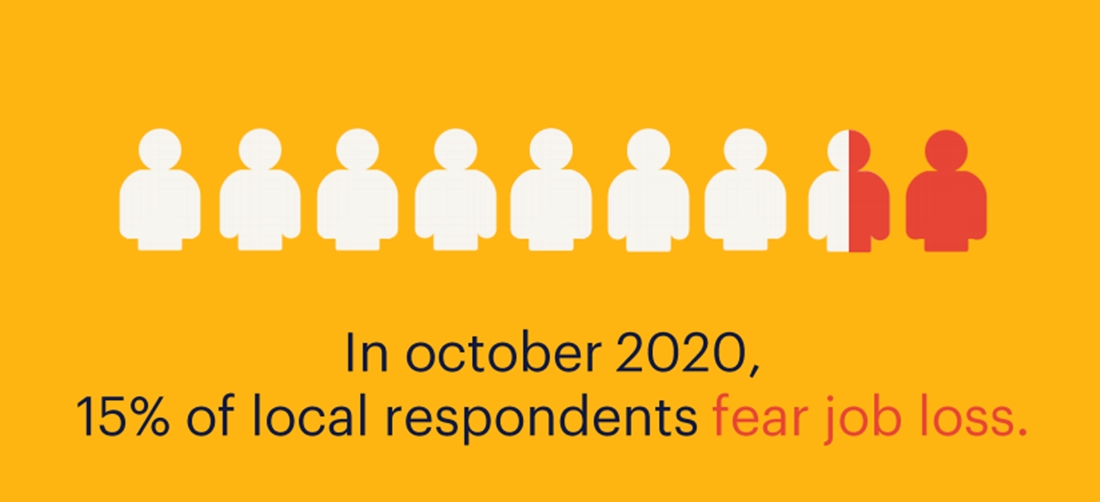By ANIS FARHANAH MALEK
[email protected]
KUALA LUMPUR 4 Feb. - Three in five respondents (61%) said that it has been a struggle to acquire new skills in their current role to adapt to the COVID-19 pandemic, according to a report by Ranstad Malaysia.
It said this sentiment is the highest among younger workers, aged 18 to 24 years old, with 69% facing difficulties to acquire new skills in this climate as opposed to 49% of respondents aged 55 to 67 years old.

As per the report, the rapid digital transformation that Malaysians experienced in 2020 has driven the demand for professionals equipped with transferable technical knowledge, soft skills and are adaptable in new environments.
“To enhance their own employability in an increasingly competitive labour market, 91% of respondents regularly refresh their skills and competencies.

“Job and skills requirements, even for the same job titles, have changed significantly pre and post pandemic as a result of digital transformation.
“Already, 70% of respondents believe that employers will have trouble finding the right talent in the future. Employers have high expectations of their candidates, as they want to invest in someone who is digitally-adept, agile and innovative, independent yet collaborative,” said the report.
Randstad Malaysia today released the second edition of its 2020 Workmonitor survey which highlights the greatest concerns and challenges candidates are facing in the employment market.

The survey was conducted in October 2020 across 34 markets around the world, with a minimum of 400 respondents in each market.
Commenting on the report findings, Head of Operations at Randstad Malaysia, Fahad Naeem said, the opportunity to learn stakeholder management skills, new systems as well as resource planning is critical to the career development of younger workers.

“As these learning opportunities diminish during remote working, the onus is on the employer to create new learning opportunities and drive employee engagement initiatives.
“The development of the human capital requires a collective effort between education institutions, governments, organisations and employees themselves.
“Employees should proactively keep pace with industry trends and upskill themselves to meet new skills requirements. Employers should also prioritise their investments in their own human capital, as companies with good training culture and programmes tend to be more attractive to candidates and enjoy higher employee retention,” said him in a statement.
According to the report, more than one in five respondents (55%) wants to work in an open environment where they can safely share and receive constructive feedback.
Additionally, 41% of respondents are attracted to employers that provide employee training programmes, it noted.
Naeem added, people learn better when they have the opportunity to resolve real business issues and challenges.
Through guidance from mentors, constructive feedback from clients and colleagues, as well as an opportunity to participate in new projects, employees are able to acquire new skills and gain valuable experiences, he said.
“Employees will also feel more valued when their employers are as equally committed to their career success.
“It is hence critical for companies to have a learning culture that is focused on skills development so that they can have an agile workforce that is always ready to respond regardless of the crisis that they face,” he further explained. - DagangNews.com










